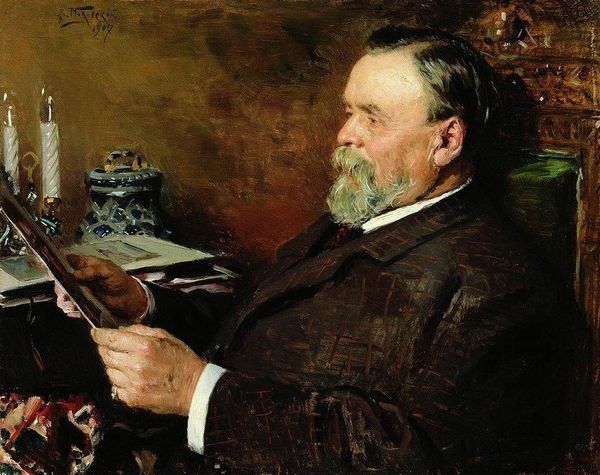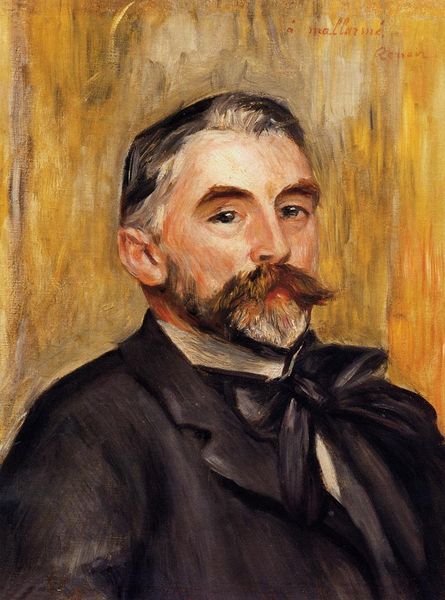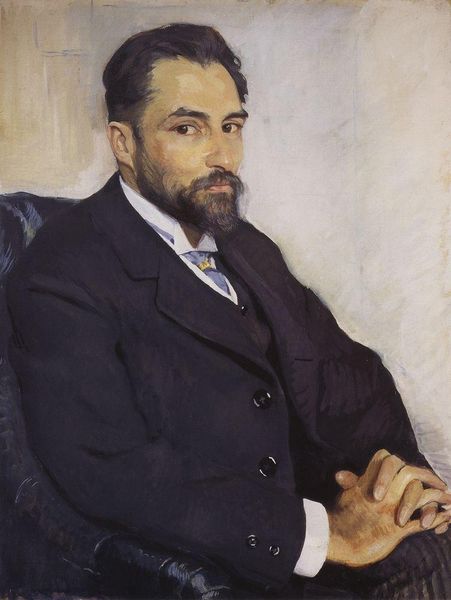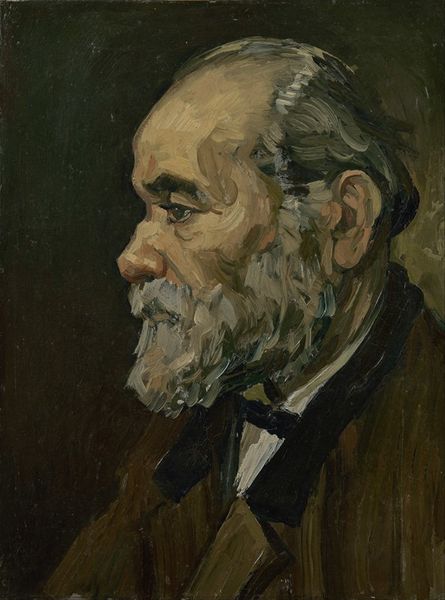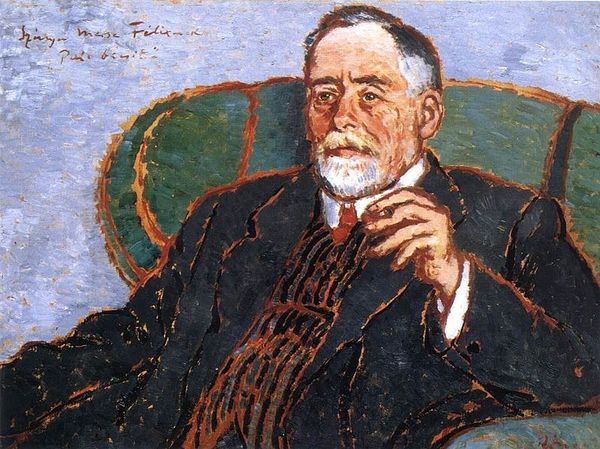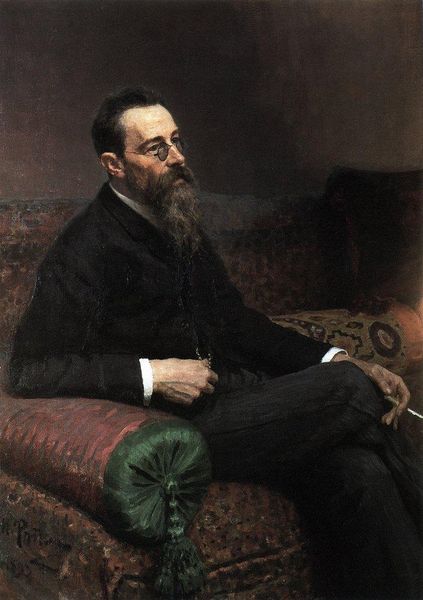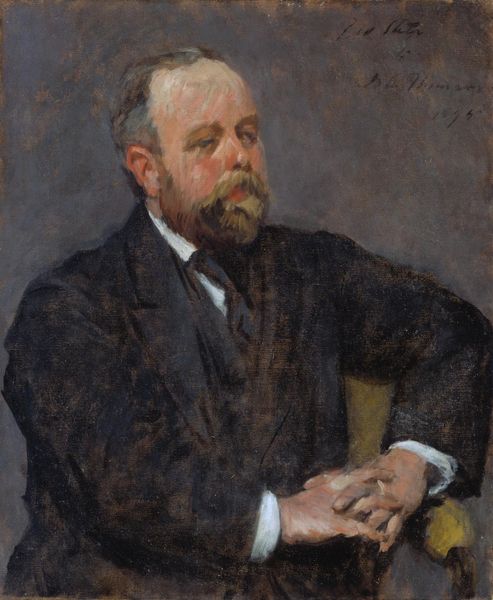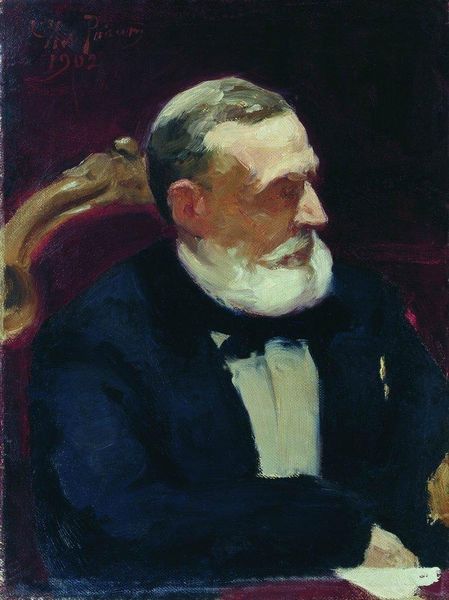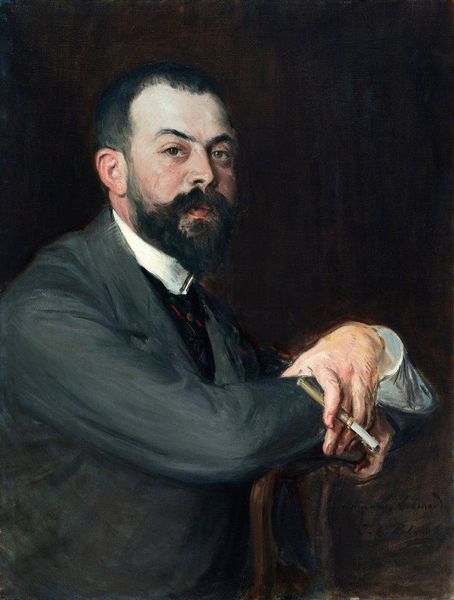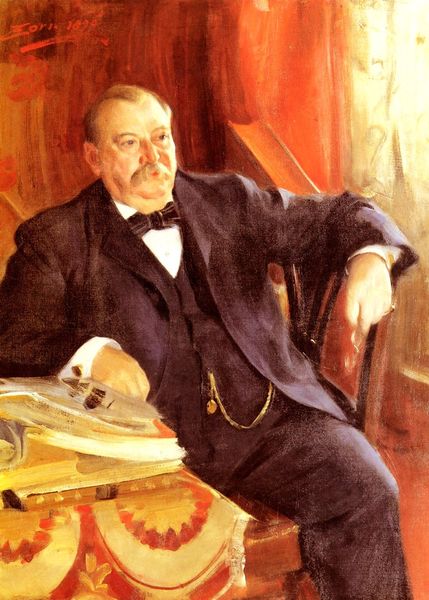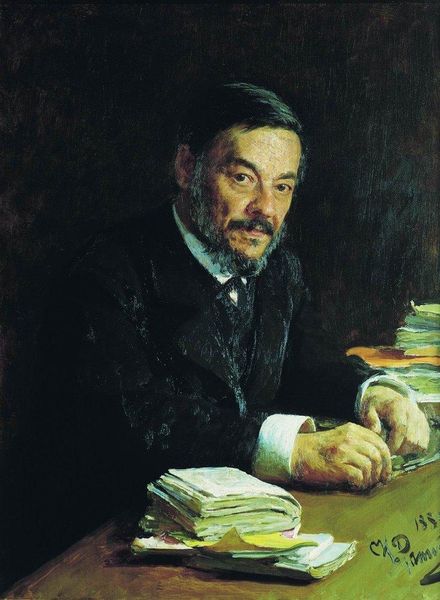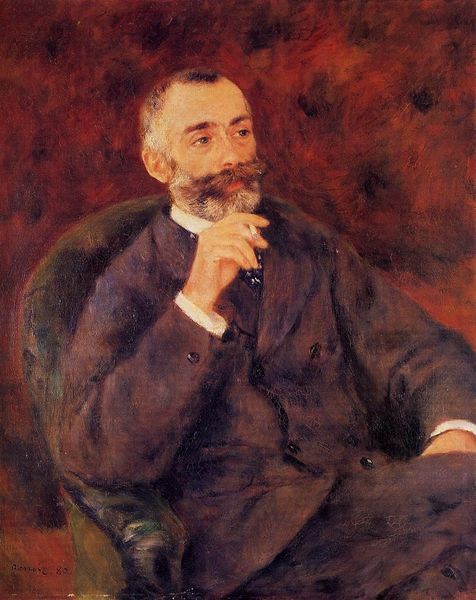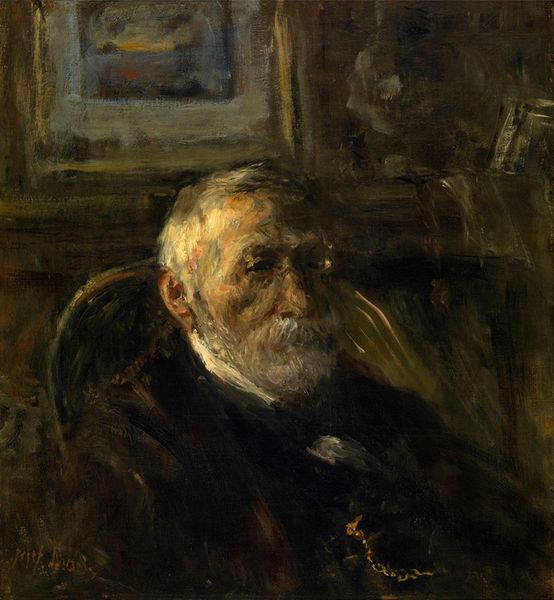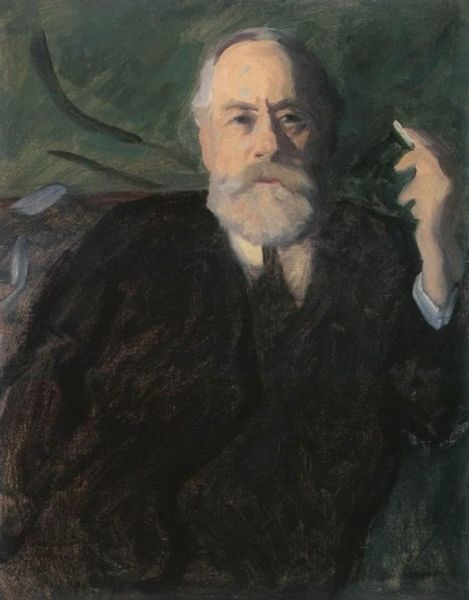
Portrait of Ivan Zvetkov 1907
0:00
0:00
ilyaefimovichrepin
Ryazan State Regional Museum of Fine Arts, Ryazan, Russia
Copyright: Public domain
Editor: Here we have Ilya Repin’s oil on canvas, "Portrait of Ivan Zvetkov" from 1907. It has such a casual and immediate feel, which I wasn't expecting. How should we approach it? Curator: From a materialist perspective, let's consider the context in which Repin was working. The late Russian Empire was a place of intense social and political change, with increasing tension between the wealthy elite and the working class. How do you think this tension influenced the artistic production and reception of portraiture? Editor: I guess the question would be who commissioned it? If Zvetkov was from the elite, then the painting would reinforce class status through its representation of luxury goods and fine craftsmanship, right? But where is the luxury? The materials look a bit slapdash for high society, like it's anti-bourgeoisie. Curator: Exactly! Look closely at Repin's brushstrokes, the thickness of the paint, the seemingly unfinished background. How do these elements challenge the traditional function of portraiture as a status symbol? Could it reflect a shift towards a different kind of patron or perhaps a different conception of what constitutes a worthy subject? Editor: So the raw quality of the materials and application, rather than conveying opulence, could be seen as making a statement about artistic labor, like demystifying the portrait process. It’s interesting that the brushstrokes have an almost performative aspect here. I hadn't thought about the relationship between the materiality and class that way before. Curator: Precisely. And what implications does that have for the labor of artistic production? Editor: The labor becomes visible, doesn’t it? The artist's hand and process are no longer hidden, creating a sort of authenticity that challenges established expectations about who gets their portrait done, and how it’s achieved. Thank you, that changed my viewpoint on this work.
Comments
No comments
Be the first to comment and join the conversation on the ultimate creative platform.
